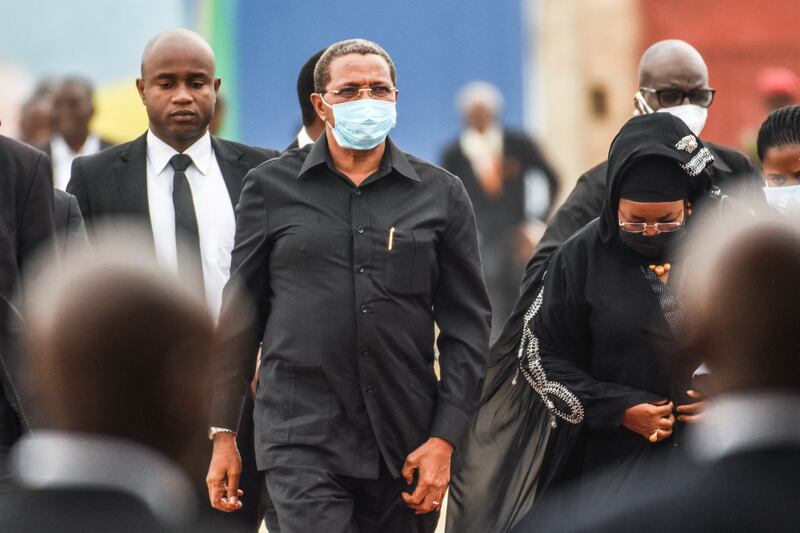Wealthy countries have a “moral duty” to invest in the education of children in the developing world, Jakaya Kikwete, a former president of Tanzania, said.
Mr Kikwete, who was in office from 2005 to 2015 and is a former chairman of the African Union, highlighted the different experiences of young people during the Covid-19 pandemic, depending on where they live.
While those in developed nations could utilise online learning even when classrooms shut their doors, Mr Kikwete said: “In our part of the world, when you close the schools that is the end of learning.”
He was speaking to The National before the high-level Global Education Summit in London this week, co-hosted by the UK and Kenyan governments. The summit is seeking to raise at least $5 billion to support the Global Partnership for Education, the fund that is working to transform education systems in the developing world. Mr Kikwete will become the chairman of GPE in September.
Ultimately, he said, investing in education – whether nationally, bilaterally or multilaterally – empowered children and put them in a better place.
Mr Kikwete said there was increasing understanding among governments in Africa that they needed to increase the percentage of their budgets given to education.
“Countries should aspire to invest more in the education of their children and young people.”
But he said the developing world still needed support.
“That is where now the developed countries have a responsibility and moral duty to help these countries.
“That is that is where we [GPE] come in,” Mr Kikwete, 70, said.
He described the fund as “a unique partnership that brings together countries, institutions, private sector, civil society organisations”.
While organisations such as the GPE are calling for an increase in education funding, many governments are cutting their aid budgets. The UK, in particular, has been criticised for slashing £4 billion ($5.53bn) from its foreign aid budget, much of which would have benefited education.
To see the world grow and “humanity develop”, Mr Kikwete said, “investing in education is the right investment to make. It’s empowering. You empower generations, which empower young people. They will become productive citizens in future, they become proactive members of society.”
The pandemic has wreaked havoc on the global education system, leaving about 1.6 billion children out of school at its peak. It has also further exposed deep inequality in education and the problems already faced in the developing world.
“There are still too many young people out of school. Dropout rates are high and learning outcomes are low.
“When it comes to education, these, to me, are the primary concerns. Because when you get to a point where boys or girls complete their primary education but they can’t read or write, they’ve not yet grasped writing, reading and arithmetic. What kind of education is that? They’ve been there for about seven, eight years in primary school.”
Mr Kikwete said the GPE’s focus was on “transforming the education systems so that children can have access to education. They can stay in school, complete their education. And, at the end of the day, come up with the skills that they’re supposed to get for that level of education” and progress through school and higher education, and on to employment.
He spoke of Africa’s surging youth population and the changing jobs market – for example, the roles being replaced by automation – as evidence of the need for a transformation of the education system.
“So when we talk about quality of education it’s the quality that is really going to respond to the realities of the times that are there.
“By 2050, for us in Africa when the population will be two billion, and a half of them are going to be young people. If you have young people who are not employable … civil strife, civil instability. It becomes a social and political problem.
“So that’s why we really have got to look at the quality of education in that sense. What kind of education we impart … Is this going to empower them to be employable in the market? Is it good education that is going to empower them to control their environment and use it to their benefit?”
Former UK prime minister Gordon Brown told the summit that investment in education in developing countries was urgently needed.
“The blunt reality is that even when Covid is over, we expect 300 million children will not be going to school at all.
“Tragically, for millions of children, total education aid globally is down $2 billion already from its pre-pandemic peak.”
“Total aid translates to only $8 per year per African pupil – hardly enough to pay for one second-hand textbook.
“That’s why we must prioritise investment in education now. Education unlocks all of our humanitarian and development goals.
“Replenishing GPE with its proven track record, its dedicated leadership and its country plans is a critical start.”






